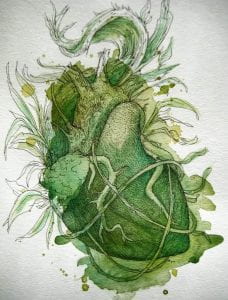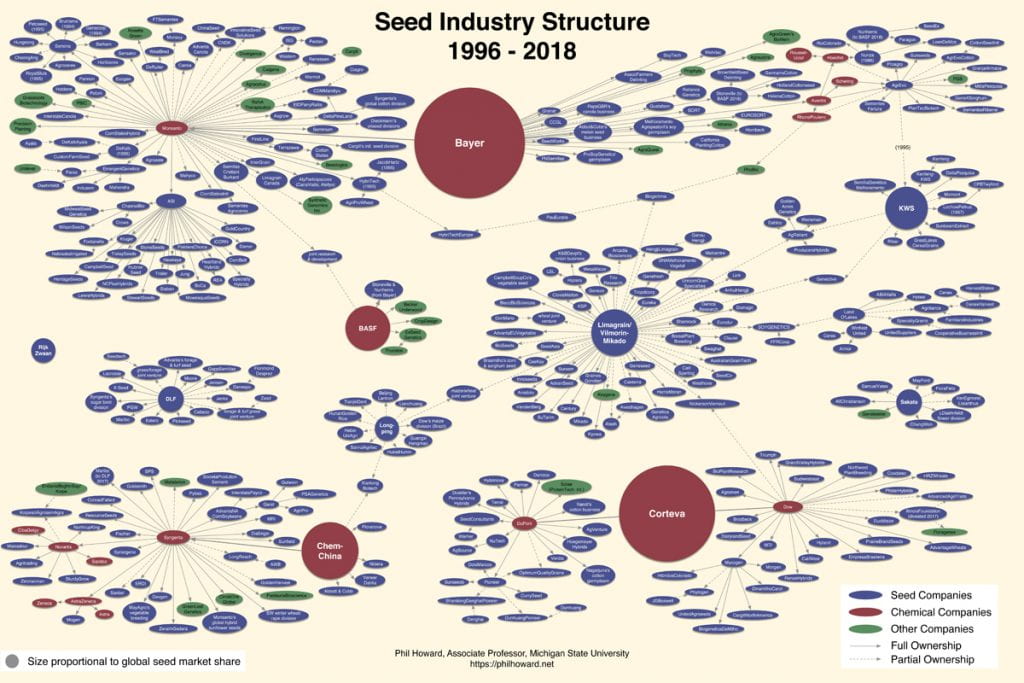Before we answer the question regarding the relevance of Ecofeminism today, let’s take a broad look at what Ecofeminism actually is through the lens of our reading by Dr. Laura Hobgood-Oster. She describes it as “simultaneously serving as an environmental critique of feminism and a feminist critique of environmentalism” (p1). And just as there are myriad feminists groups and ideologies, so too is there a variety of ecofeminist’s theory, in constant movement and change, depending on the issues at hand and the individuals analyzing them. Hobgood-Oster also states that there is an unbreakable connection between Ecology, feminism, patriarchy, “classism, racism, sexism, heterosexism, naturism (a term coined by Warren) and speciesism…” (p2). In order to understand ecofeminism, we must view patriarchal destruction of mother earth simultaneously along with the “isms” that societal patriarchy creates and move to disassemble them. Only then will we begin to heal the planet and the climate crisis we find ourselves in as well as equality for women. Ecofeminism looks at breaking down our human hierarchy over the natural world.
I come from a Buddhist background and understand that everything that is alive and not alive is made of energy. The same energy, whether it’s breathing or static. There is no hierarchy, no one thing that is superior to the other. This is non-duality. Therefore, to live a non-dualistic life means there are no opposites like male/female, right/wrong, birth/death. Non-duality is living in the present, in this moment, before the definition of things, before preferences, without preconceived ideas of how life should be, or how humans should conduct themselves. Ecofeminists have this ultimate goal as a basic theory as well. The writings of Karen J. Warren define dualism as one of the eight connections between women and nature within ecofeminist theory. She states, “Frequently cited examples of these hierarchically organized value dualisms include reason/emotion, mind/body, culture/nature, human/nature, and man/woman dichotomies…(W)hatever is historically associated with emotion, body, nature, and women is regarded as inferior to that which is (historically) associated with reason, mind, culture, human (i.e., male) and men” (Warren). She also explains the social constructs of oppression in the “isms” that create a hierarchy of superiority vs. inferiority. All such “isms’ (racism, sexism, colorism, ableism, ageism, colonialism, ethnocentrism, heterosexism, and more) are artificially manufactured within society to maintain the status quo of patriarchal superiority.
If we divide and/or separate, we will lose sight of our goal of unity and oneness with mother earth. And the death of our planet, its animals and lushness, is directly tied to the death and subjugation of the female. In order to nurture the earth, we must also nurture all women and all beings. “As a justice advocate for the entire web of life, ecofeminism resists dividing culture into these imbedded separate or dualistic arenas” (Hobgood-Oster, p3). For myself, I found great relief and comfort in this non-dualistic approach. No longer did I perpetually separate and condemn someone or something as wrong, but could view them with objectivity, care and concern, inquiring into the historic nature of the particular situation instead of calling something “bad” or “unacceptable” without any background truths and perceptions. To dismantle dualism is one way ecofeminists can change the subjugation of women and the natural world.
Another theory Ecofeminism embraces is that it “replaces hierarchical dualisms with radical diversity and relationship, modeled on both biodiversity and the feminist emphasis on the strength of difference” (p4). The more diverse our planet, the greater the reward and the longer the life. In contrast take, for example, the fact that a handful of corporations hold the patent on the majority of seeds, mostly genetically modified (see below).For more information, go to :https://civileats.com/2019/01/11/the-sobering-details-behind-the-latest-seed-monopoly-chart/
In limiting our seed supply and production, our planet has lost much of its diversity and adaptability, therefore subject to extinction, pest infestation, and lack of biodiversity for sustenance and maintenance of a healthy, thriving ecology. The death of this biodiversity is also the societal oppression and rejection of women as equal and valuable to the well being of all things. As stated earlier and often, ecology and feminism together are essential for the survival of mother earth.
I recall many years ago, in my twenties, when I was in dire straits emotionally and psychologically. I felt lost and alone. It was the understanding that I was not alone, that Jesus Christ was always with me, that I began to emerge from my despair. But a few years of watching the discontinuity and often destructive behavior of the church pitting itself against science along with interpersonal divisiveness that I moved away and settled on a more inclusive, Buddhist way of seeing. This religious rejection of science and the well being of the planet should not be interpreted as spiritual rejection. On the contrary, ecofeminism and spirituality has strong ties among indigenous women and women like myself, who care deeply about the planet’s future from a spiritual, but not dogmatically religious place. The idea that religion and science were at odds struck me as inaccurate in the Christian belief system. “Ecofeminism suggests that the antagonism sometimes existing between religious and scientific world views has been detrimental, used by both approaches to advance their own hierarchical structures” (p7). This is so clearly apparent in todays political climate, with the present administration eliminating and striking down one environmental law and restriction after another, often in the name of Christianity (biblical dominion over the earth by man), for the sake of big business and the almighty dollar. Along with environmental disregard is the continued disregard and denial of women’s rights and their voices. A patriarchal system of government cares little for mother nature and the women in it, ignoring the scientific research stating clearly that our lives here will be short if we continue to pretend that the thousands of warning signs are illusionary.
As we travel back to the initial question at the beginning of this post, of whether Ecofeminism is still relevant today, and watch the video entitled the same, what is the answer? As the warning signs of catastrophic planetary collapse loom larger, shouldn’t we be listening to the women who stand up and fight for their land, their heritage, their families, our planet? The relevance of an Ecofeminist movement seems to be even more urgent than the writings of Dr. Hobgood-Oster in 2002. The video suggests great advancements in the Ecofeminist movement while at its core there is still a deep connection between the destruction of the environment and the oppression of women. “A primary claim within Ecofeminism is that women’s liberation is intertwined with the liberation of the environment from human destruction” (video). Ecofeminism, however, is itself a dualistic movement, with most women of color ignored and not taken into account as part of the whole. There continues to be this separation, just as it was since its inception in the 1970’s (black/white). Whereas women of color focus on environmental justice today within their own communities, white women in the Ecofeminist arena focus on feminist spirituality. It is essential for ecofeminist groups to join together to create a cohesive strategy, initiating the changes necessary for the slow but methodical dismemberment of the negative societal constructs that keep all women, especially women of color and the environment around them in a steady pace of decline.
If women are the heart of this beautiful mother earth, they are also the mind and hands. It’s time to get to work.

https://medium.com/@khern019/does-it-work-ecofeminism-building-the-bridge-between-environmentalism-and-feminism-e8b13ded5f52


Hello Tari, I enjoyed reading your blog. I thank you for also sharing your religious beliefs and your change in religion. I too have thought of adopting a more buddhist way of life however I have not dug deep enough to do so and hope to hear more about its play on your opinion and how you go about living your life. I do like your ending statement however I do believe that all should be held accountable and all should participate in turning around the decline of the Earth. As some would say we did not create this mess by ourselves and we shouldn’t have to clean it up alone either. Thank you for sharing!
Hi Tari,
I liked that you mentioned Buddhism in your post, as it is such a strong aspect of how we are connected with the environment and the universe. Buddhists do not believe in birth or death but the continuation of life. This is important to ecofeminism because essentially, it helps us understand that when we do not take care of the environment, we are not in touch with ourselves. One practice I enjoy is that of meditation, which involves a lot of understanding how to breathe and, it is something we all have to do in order to live. As such, if we all understand this concept, it would be easy to see that what we breathe in is equally a big part of being. As long as we are alive and the air is polluted, then that means that we may also be subjected to toxin/carbon-dioxide released in the air. Therefore, I think it is extremely important for us to understand how the simple products, whether it being household or personal that we come into contact with can have a strong effect on our health. Buddhism and sciences can teach us this.
Hi Tari,
What a thoughtful blog post. You did a great job breaking down what ecofeminism is not only from a logical standpoint, but from an emotional one. I really identified with a lot of what you are saying. You shared your past and how spirituality helped you get to a better spot in life, and said it in a way that made ecofeminism sound relatable. Thanks for breaking it down like that. I also was at a point in my life five years ago when I was searching for guidance, and looking for a higher power. While I could not find anything religiously to identify with, I did look to nature as my higher power. I knew that in nature, there was something bigger than myself. When I go outside, no matter how hard I try, I cannot stop the leaves from changing color in the fall. I cannot stop the waves from crashing on the beach. Nature is, in it’s own way, a life. I believed in that, and also believed in feminism. I did not know that such a term as ecofeminism even existed until recently. I think a lot of people would identify with ecofeminism as well if they had it broken down for them. Thanks for making that more relatable!
That sounds absolutely wonderful. The idea that nature is life is truth. Nature needs warmth, water, nourishment, care, a safe environment to grow strong, everything that humans need. What you wrote is lovely and I appreciate your reply. There’s a nontheistic religion called Jainism that teaches to do no harm to anything. Worms, bugs, plants are all sacred and precious life. To eat a plant is to thank it for providing nourishment and to honor it’s existence. To me, that’s a religion I can get behind!